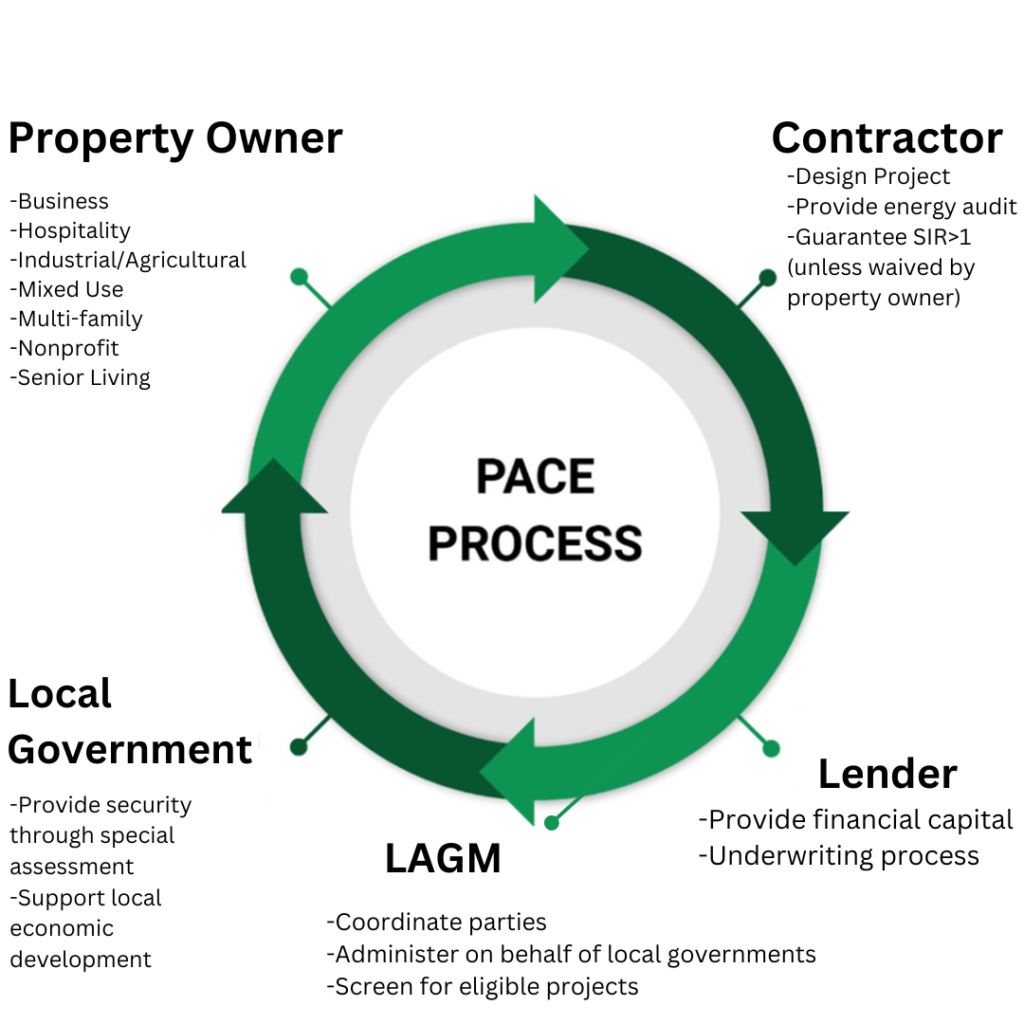How PACE Works
The average American business can save at least 30% of their utility bills by eliminating waste. The problem is that the upfront cost of an energy efficiency, water efficiency or renewable energy project to eliminate that waste may be difficult to justify. Until now.
PACE is a financing tool that enables cashflow positive investment in comprehensive energy efficiency, water efficiency and renewable energy projects. By financing such projects through PACE, businesses can eliminate the need for upfront capital and spread the costs over up to 25 years so that the savings generated from the project are greater than the annual PACE loan repayment – generating immediate positive cash flow.
In 2023, the PACE statute was amended to include Environmental Hazard projects as eligible for PACE financing. This includes:
- Mitigation of lead, heavy metal, or PFAS contamination in potable water systems.
- Mitigation of lead paint contamination.
- Mitigation of the effects of floods or drought.
- Increase the resistance of property against severe weather.
PACE financing allows a property owner to voluntarily enter into a special assessment agreement, which can be repaid over a period up to 25 years.

This differs from a traditional bank loan in many ways. For example:
- PACE special assessments feature terms of up to 25 years – much longer than a traditional bank loan.
- The PACE special assessment is non-recourse and “runs with the land.” The owner can sell the property and the new owner simply picks up the payments (and energy savings).
- Up to 100% of the project’s hard and soft cost can be covered under a PACE special assessment. No upfront costs are required.
- Under Michigan’s PACE statute, the savings must be guaranteed on all projects of $250,000 and up.
- Bottom line: property owners doing PACE projects approved as part of Lean & Green Michigan will generally pay nothing down and will generate more money in savings than they finance. The project will be cash flow positive from beginning to end. In fact, under Michigan’s PACE law, this savings to investment ratio must be positive on day one as a condition of project approval.